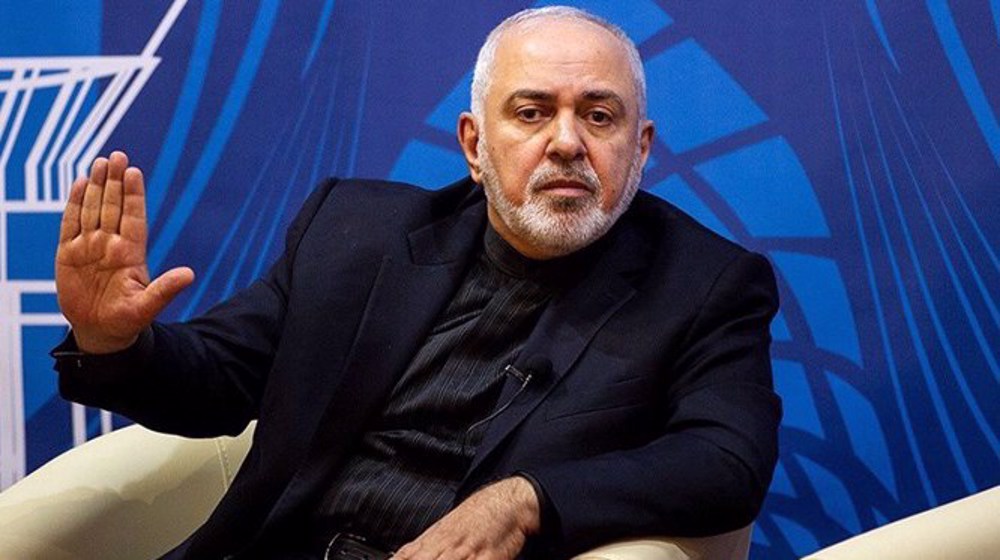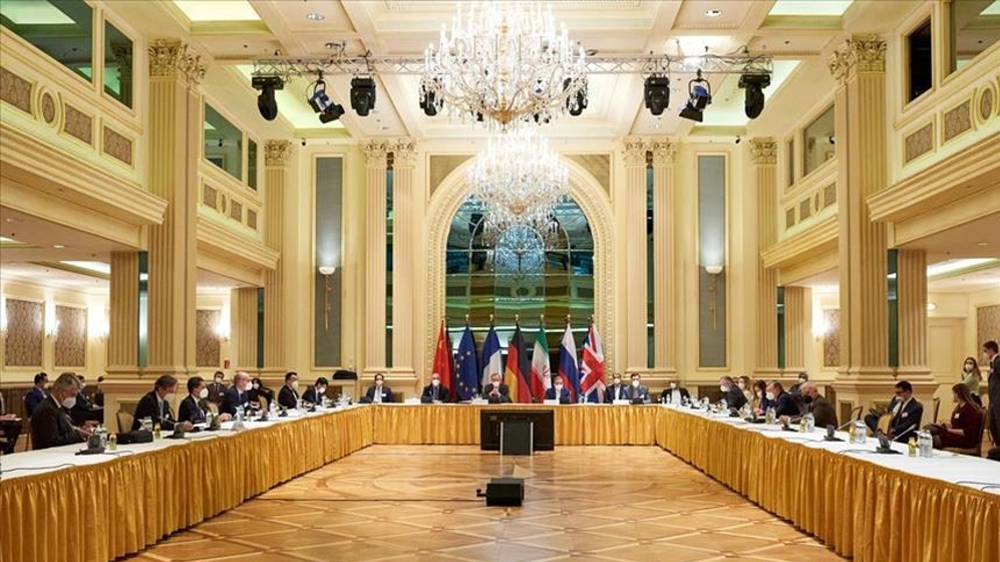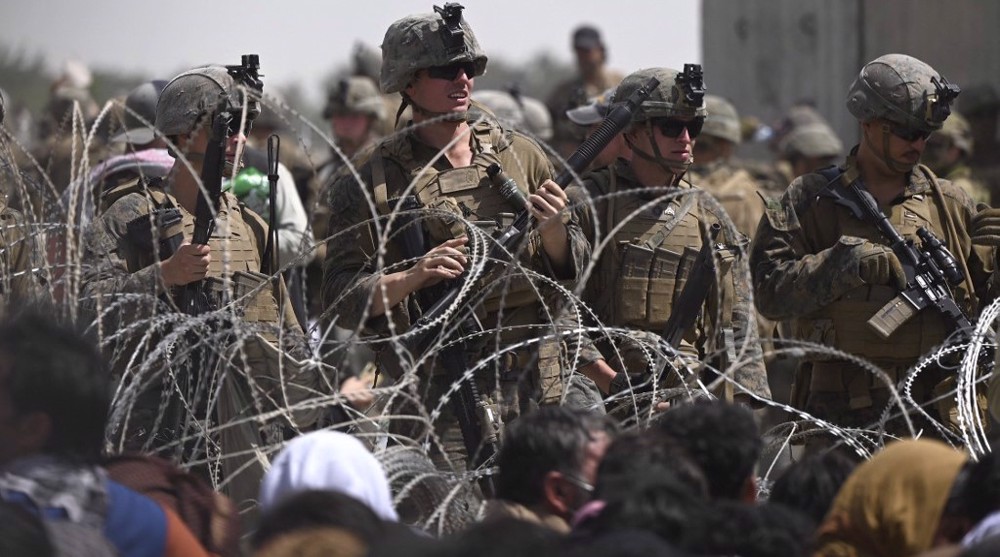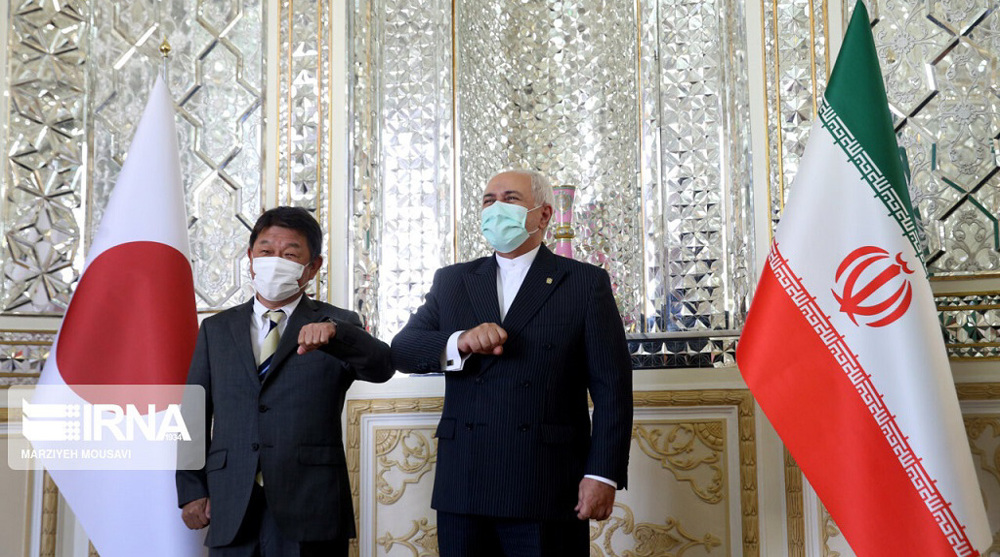Raeisi: No justification for delayed unfreezing of Iran’s assets in Japan
Iran’s President Ebrahim Raeisi has censured Japan for refusing to release Iran’s frozen assets in the country’s banks, saying there is no justification for the delay by Tokyo in unfreezing Iran’s assets.
In a Sunday meeting with Japanese Foreign Minister Toshimitsu Motegi in Tehran, Raeisi stressed the importance of releasing Iran's foreign exchange resources blocked in Japan, emphasizing, "The delay in the release of Iranian assets in the Japanese banks is not justifiable.”
In an interview with Kyodo News in February, Iran's Foreign Minister Mohammad Javad Zarif called on Japan to unfreeze the assets, blocked due to the US sanctions, and also persuade US President Joe Biden to lift the bans imposed on Iran.
"We expect Japan to act as a friend, particularly when it comes to international law,” Zarif said, referring to the illegal nature of the US sanctions.
In another part of his remarks and in response to the top Japanese diplomat’s statements on the necessity of implementing Iran's nuclear deal with world powers, officially known as the Joint Comprehensive Plan of Action (JCPOA), as an international agreement, Raeisi said, "Iran has been fulfilled all its obligations as per the JCPOA and it was the Americans who failed to fulfill their obligations and unilaterally left the international deal and extended sanctions” against Tehran.
He added that the Europeans signatories to the JCPOA – Britain, France and Germany – also followed suit with the US and refrained from fulfilling their obligations under the deal, adding, "The Americans must answer to the world public opinion why they did not respect their JCPOA commitment and left the agreement."
The JCPOA was reached between Iran and six world powers, including the United States, Britain, France, Germany, Russia and China in 2015. However, the deal was ditched by former US President Donald Trump in 2018 in spite of Iran’s full compliance with its contractual obligations.
Since April, the remaining signatories to the JCPOA have been holding face-to-face talks in the Austrian capital aimed at bringing the US back to compliance and putting the deal back on track.
So far, six rounds of negotiations have been held in Vienna, as a result of which, according to participants, “significant progress” has been made in the course of the “constructive” and “businesslike” talks.
However, disagreements have persisted over a number of issues, including how to sequence the US sanctions removal, with Tehran arguing that since Washington was the party that violated the terms of the agreement, it should take the first step back into compliance with the deal by removing its unilateral sanctions.
Raeisi told the Japanese minister that Iran has no problem with negotiations, asking, "On what grounds US sanctions against the Iranian nation must continue?"
US did not bring security to Afghanistan, posed threats to country: Raeisi
Elsewhere in his talks, the Iranian president pointed to the recent developments in Afghanistan and hailed the efforts made by Japan and other countries in the region to help establish peace and stability in the war-ravaged country.
"The Islamic Republic of Iran has always supported and will support peace and stability in Afghanistan. We believe that the Afghans are the only ones who should be allowed to made decisions for their country,” Raeisi stated.
He criticized the interference of foreign powers in Afghanistan’s internal affairs, saying that it only worsened the existing problems.
“The presence of Americans in the region, including Afghanistan, has not only failed to create security, but has given rise to threats. Today, after 20 years [of occupation], Americans are admitting that their presence in Afghanistan was wrong," he said.
The Iranian president said there is no doubt that the US would also own up to its mistake about its presence in other countries in the region and the Persian Gulf in the near future.
‘Security of international waters benefits all countries’
Raeisi also said ensuring security of regional and international waters would be in the interest of all countries, emphasizing, "We consider insecurity in the region detrimental to regional and international security and oppose it."
He emphasized that avid quest for power, if its takes root in the world, would not benefit any nation and region.
The Iranian president said, “American’s bullying [approach] is a threat to independence, freedom and identity of nations, and it is an imperative for other countries to stand up to unilateralism of bullying powers.”
‘Tokyo supports JCPOA as an international agreement’
The Japanese foreign minister, for his part, said his country has made efforts to establish peace and stability in the region, adding that Tokyo has always supported the JCPOA as an international agreement and believes that its revival is in the interest of all countries as it can help solve problems through negotiations.
Japan's top diplomat also expressed concern over the recent developments in Afghanistan.
Motegi said Tokyo supports diplomatic efforts to achieve peace, stability and tranquility in the region and its principled position is based on the settlement of issues through peaceful channels.
The Japanese foreign minister is in Tehran for talks with Iranian officials, on the first leg of a tour taking him through the West Asia region.
The Iranian foreign minister said earlier in the day that he has exchanged views with his Japanese counterpart on a range of issues, including “the catastrophic US-engineered situation in Afghanistan.”
D-8’s role in Iran’s economy after Cairo summit
China slams US as ‘war-addicted’ threat to global security
China ‘firmly opposes’ US military aid to Taiwan
VIDEO | Press TV's News Headlines
President Yoon Suk Yeol to be removed from office
At least 19 Gazans killed by Israeli airstrikes since dawn: Medics
Leader: Iran neither has nor needs proxy forces
US fighter aircraft shot down ‘in friendly fire’ amid aggression on Yemen













 This makes it easy to access the Press TV website
This makes it easy to access the Press TV website